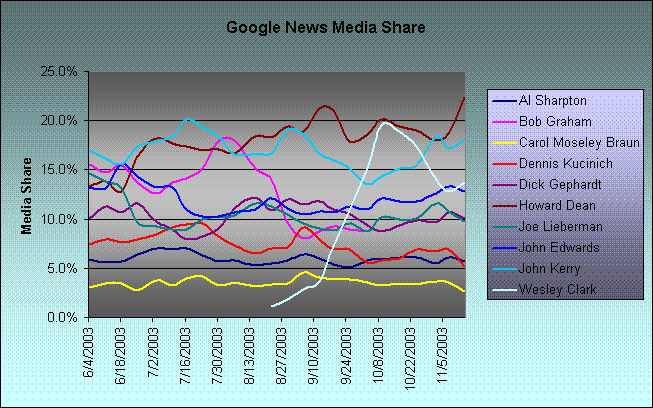Clark's political skills
It's things like this that highlight my concern about Clark's political smarts:
Wesley Clark, who bypassed Iowa to focus on New Hampshire and other primary states, will skip a Democratic presidential debate in the Granite State next month to attend a fund-raiser in New York.
The debate is slated for Dec. 9 and the eight other candidates have changed their schedules to attend. Clark, however, will be taking part in a previously scheduled fund-raiser in which the campaign hopes to collect $1.5 million.
"I hope the people of New Hampshire will understand," Clark told reporters Friday. "I certainly mean no disrespect. You make obligations. You can't move them. You can't get out of them. People have to respect that."
Clark said he asked the Democratic National Committee to reschedule the debate or hold it at a different time that same day, but the DNC could not. "We have not moved any of the debates and there have been other scheduling conflicts" from other candidates, said Josh Wachs, the DNC's chief operating officer.
Clark thinks attending a fundraiser is more important than attending a debate (recall that he almost skipped out on the first debate after he announced his candidacy)? Clark actually thought the the DNC would consider rescheduling the debate to accommodate him? Did he give any consideration to the fact that eight other candidates have had to coordinate their schedules for this thing? Did he expect them to just change on such short notice?
Clark may be a great guy. He would certainly make a better president than Bush. But actions like this really make me question his basic understanding of what it means to run for president. I'm doubly shocked that his campaign people would do something this stupid.








